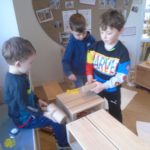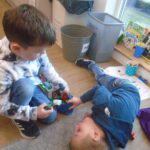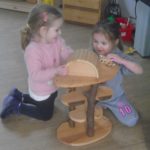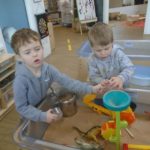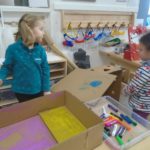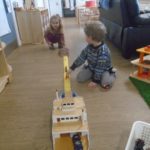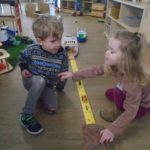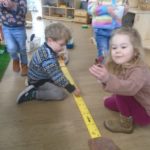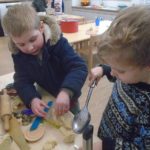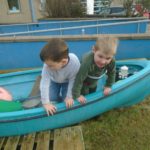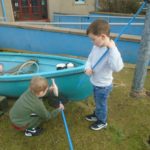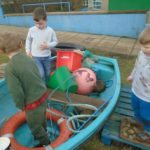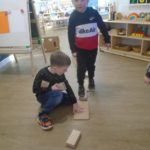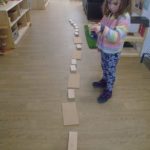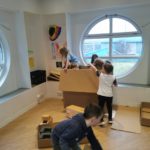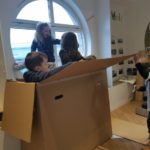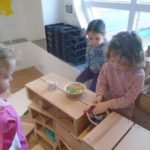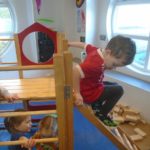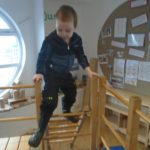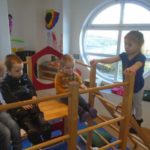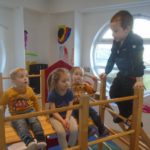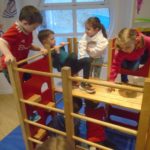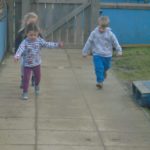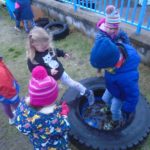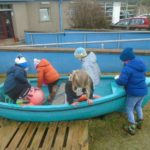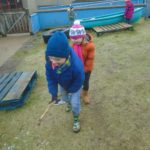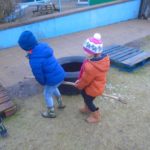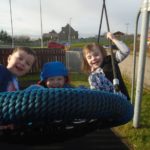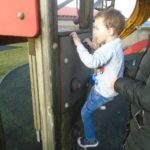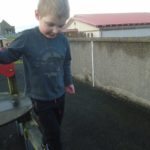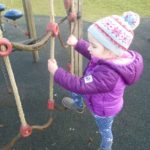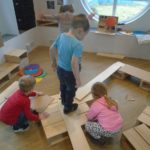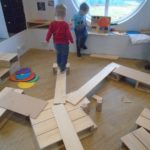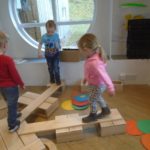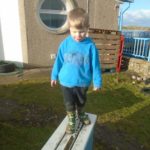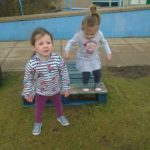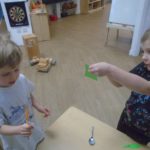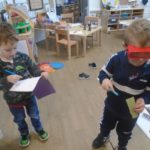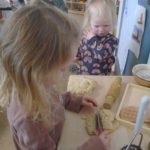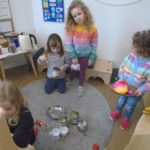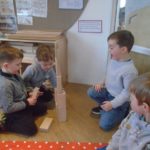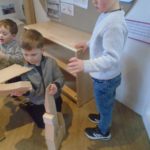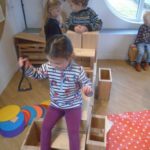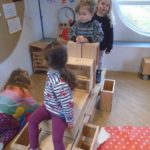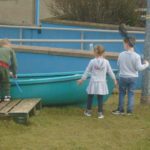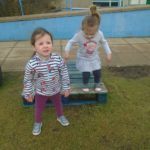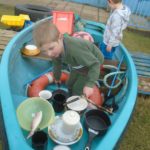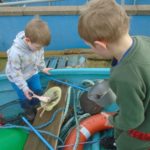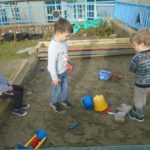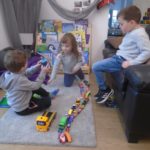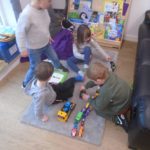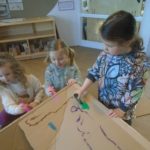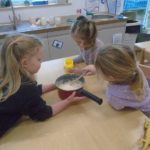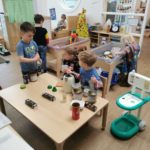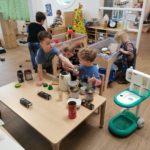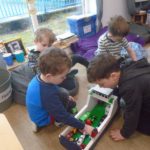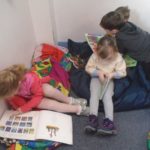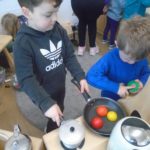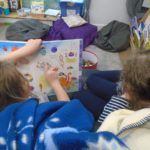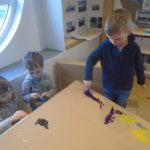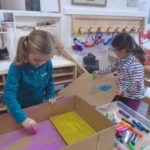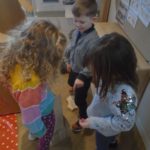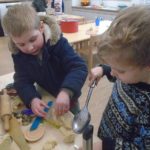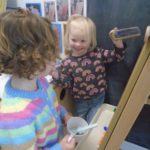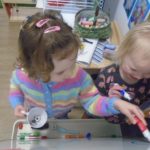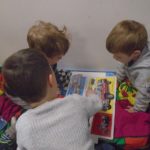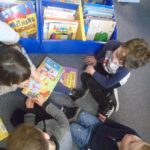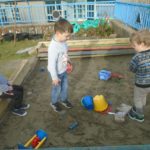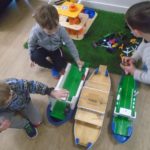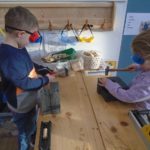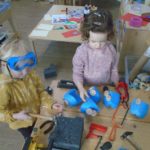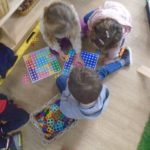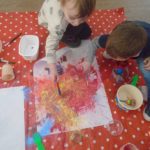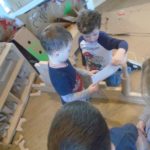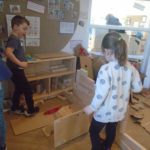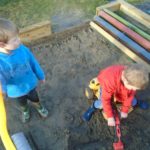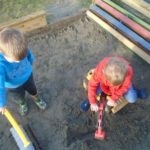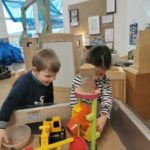This week we’d like to share with you how play in our early years helps us to develop into well rounded, academically able and emotionally intelligent adults with good mental health!
Every day in nursery, through our play, we experience a wide range of emotions and feelings. Emotions are our bodily reactions that are activated by our brain and feelings are our conscious experience of these bodily reactions. Enabling us to become aware of our emotions and to express feelings during play is very important for our social and academic development.
Nursery is a safe place where we can explore negative emotions and feelings, such as fear, frustration, anger and aggression through our play. When expressing these emotions, and when witnessing other people express these, we learn about our own feelings and about empathy and how to understand others. It is important for us to deal with negative feelings and emotions within a safe play environment so that we learn and understand that these are normal and that there are ways to cope with them. Sometimes during play with others we come across times where we feel angry and frustrated. Adults support us to learn how to find words to explain our feelings and to understand them. Over time, sometimes with support, and always through our play, we learn to control anger and frustration because we want to keep playing. Through real life play experiences we learn which behaviours lead to continued play and which behaviours end play. Understanding our emotions and feelings and learning how to control these are crucial life skills which helps us socially and academically throughout our lives.
Being young children we love to play in emotionally exciting ways. We naturally seek out experiences that our bodies and minds need in order for us to learn about risk, fear and excitement. Visits to the playpark and play within the setting that involves spinning, swinging, balancing, leaping and climbing teaches us about natural levels of fear and excitement that we can tolerate. In this way we learn how to manage strong emotions and how to prevent these from stopping us learn both physically and academically. We learn that strong emotions are normal and healthy and something we can control and overcome. It is play such as this that allows us to grow up able to manage our emotions rather than succumb to them.
We also practice emotional regulation in our make-believe, fantasy play where we explore a wide range of emotions and feelings. When we play we create imaginary worlds, characters and plots that match our emotional states and help us learn to express and regulate our feelings. Free play allows us to fully express ourselves without anyone or anything holding us back. This week our nursery resources have magically turned into many things including boats, cars, lunch trolleys and houses. Expressing our feelings as we play in these imaginary ways allows us to work through real life scenarios. In doing this, we form a base for healthy emotional, mental, social, and physical well-being as we learn how to manage our emotions in a socially acceptable ways. During imaginative play we are able to “pretend” we are experiencing events that stir up mixed emotions.
As we cognitively develop we seek out more instances of group play. Playing together with others is hugely important for teaching us about real-life relationships. When we develop and test relationships in our play, we learn self-control and negotiation skills. We also learn survival skills, independence and acceptable group behaviour which we build on as we grow up. Group play helps us prepare for a lifetime of interacting with others. Playing with others gives us a chance to pretend to be other people and to fulfil roles we wouldn’t normally get to in real life. Recently we have been ferry crew, firefighters, police officers, train drivers, skippers, fishermen and women. Role play helps us see the world through others eyes and develop empathy. Research has shown that when we engage in socio-dramatic play we develop better social skills, more empathy, more imagination, and more of the subtle capacity to know what others mean. We are also less aggressive and show more self-control and higher levels of thinking.
When we start nursery, and as we develop cognitively, it is also very important for us to have time to play alone and to watch others play. By observing peers play, and listening to them play around us, we learn about social cues and interactions without becoming overwhelmed by our own emotions.
We hope you’ve enjoyed finding out about some of the ways that we develop the very important skill of emotional intelligence through play 🙂

